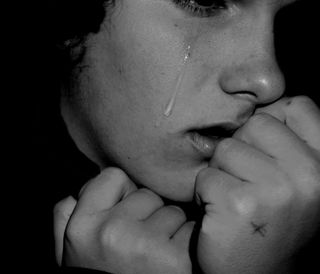
Depression
Adolescents and Depression - Part 1
Nine life events that can set the wheels of depression in motion
Posted January 22, 2016

If you’ve raised an adolescent, or remember that phase of your own life, you’ll probably agree that it’s a time of tremendous turbulence and change. The developmental milestones that begin as early as 10 years old and continue until 26 years old are complex and confusing as changes happen biologically, emotionally, psychologically, cognitively, and interpersonally. There is so much to navigate, both internally and externally, and it’s not unusual for teens to experience quick shifts in mood and temper. And yet even with those challenges, it’s a mistake for parents, teachers, or mental health professionals to assume that a Major Depressive Episode is a “normal” or inevitable rite of passage in the teenage years.
Although 8% of teens suffer from depression at some time during any one year period and about 20% of teens experience a depressive episode before reaching adulthood, when the symptoms of depression surface they should never be minimized and always be addressed. This is particularly important for adolescents who have a family history of depression, addiction, or suicide. They are even more predisposed to recurring bouts of depression, are more likely to self-medicate with drugs and alcohol, and are more vulnerable to suicidal ideation and attempts. Many teens fall through the cracks and don't get the level of mental health support and care that they need and deserve when the manifestations of depression are disregarded and chalked up to “adolescent moodiness” or a “typical developmental phase.”
The onset of a depressive episode is often mediated by biology and brain chemistry, but oftentimes there are external events and stressors that can activate the symptoms of depression. This is particularly true when those experiences are not adequately processed and healed, or are handled by the teenager without adult guidance or intervention. Here are some important life events that left untreated can evoke a depressive episode:
- Sudden changes in body appearance or health that leaves the teenager feeling disempowered or ashamed
- Peer group rejection
- Inability to evolve a self-identity that feels authentic and satisfying
- Inability to navigate or avoid peer pressure or academic pressures
- Experiments with drugs and alcohol that lead to car accident, date rape, or arrest
- Cyber-bulling and other forms of shaming on social media
- Growing up with parental addiction, depression, anxiety, or medical illness
- Witnessing domestic violence or other dysfunctional family dynamics
- Experiencing or witnessing childhood sexual, physical, emotional, psychological or verbal abuse or neglect
In the next installment we'll look at the specific symptoms associated with depression.

